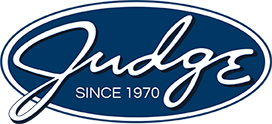Nursing in Focus: Emerging Nursing Trends and Their Impact
With over 4 million registered nurses employed across the United States, these critical clinical practitioners represent the largest group of healthcare professionals in the country. Despite their dominant presence, nurses have been dwindling in number for several years, with demand steadily outpacing supply.
As reported by the Nursing Times, the U.S. Bureau of Labor Statistics anticipates a need for over 275,000 additional nurses between 2020 and 2030. Notably, employment prospects for nurses are expected to surge at a rate of 9%, surpassing the growth rate of all other occupations from 2016 to 2026.
The nursing shortage is just one of many trends shaping today’s healthcare workforce. We’ll explore this and other major shifts making waves across the industry and how you can prepare your organization for what lies ahead.
Context Counts: What’s Driving the Nursing Shortage?
Although COVID-19 greatly exacerbated the shortage, nursing professionals were feeling overburdened and under-supported well before the pandemic struck. Nursing employment levels have historically ebbed and flowed over time due in part to factors such as economic downturns, retirement waves, and fluctuating healthcare needs. Other factors include:
- Aging populations: The increasing demand for healthcare services, particularly from an aging population with complex healthcare needs, puts pressure on the available nursing staff.
- Inadequate workforce support: Insufficient support for nurses, including workload management, professional development opportunities, and staffing levels, contributes to burnout and turnover.
- Educational barriers: Challenges in nursing education, such as limited capacity in nursing schools and a shortage of qualified faculty, impede the training of new nurses.
- Workplace stress: High stress levels, long working hours, and challenging working conditions contribute to nurse dissatisfaction and attrition.
- Global competition: An international shortage of nurses creates competition for qualified professionals, making it harder for healthcare organizations to recruit and retain talent locally.
The ongoing hospital shortage poses a challenge with only a handful of available solutions. A few hospitals are capitalizing on grants to create additional training opportunities for new nurses, while others are employing travel nurses and international staffing to fulfill immediate staffing requirements and alleviate the strain on their workforce.
Increased Demand for Specialized Nursing Professionals
As patient populations change and age, the need for specialized care evolves, too. For example, an aging global population leads to the rise of chronic illnesses and complex health conditions, necessitating specialized nurses like those with expertise in geriatrics to provide tailored care for the elderly. Palliative and end-of-life care, nurse anesthetists in surgical settings, and nurses with expertise in cardiac care and cardiovascular nursing are also essential areas where specialized nurses are increasingly in demand.
Additionally, developments in medical technology are contributing to a need for specialized nurses in critical care, surgical, and oncology to manage and administer advanced treatments. The growing focus on mental health as a crucial component of overall wellbeing has led to an increased demand for psychiatric and mental health nurses. This trend underscores the importance of a diverse and skilled nursing workforce to address specific and ever-shifting patient needs.
Focus on Education and Professional Development
Lifelong learning is integral to nursing practice, and institutions are adopting models that support ongoing education throughout a nurse’s career. Continuous professional development ensures that nurses remain updated on the latest advancements, evidence-based practices, and changes in healthcare policies. New and growing learning modalities include:
Online learning platforms: Online platforms offer flexibility, enabling nurses to balance their professional responsibilities with ongoing education. This trend facilitates greater accessibility for nurses to pursue advanced degrees, certifications, and specialized training without geographical constraints.
- Simulation and practical experience: Modern nursing education increasingly emphasizes practical experience through sophisticated simulation technologies. Simulated clinical environments provide a safe and controlled setting for nurses to hone their clinical skills, make critical decisions, and enhance their ability to respond to real-world scenarios.
- Specialized training programs: The demand for specialized nurses has led to the development of targeted training programs. These programs focus on specific areas such as critical care, palliative care, gerontology, and others. Tailored training equips nurses with the expertise needed to address the unique challenges presented by various patient populations and medical specialties.
- Credentialing and certification: With a heightened focus on quality and competency, nurses are pursuing specialized certifications to validate their expertise. Certifications are becoming standard benchmarks for competence in specific areas of nursing, providing both professional recognition and assurance to patients.
As we move forward, it’s clear that staying ahead of these trends is crucial for ensuring quality patient care and the well-being of nurses themselves. At The Judge Group, we understand the fluid, fast-paced nature of the healthcare industry and the significance of a well-prepared nursing workforce. Whether you need to augment your nursing staff or create training programs to sharpen your employees’ skills, we can help you find the right solution for your business. By partnering with Judge, you’re not just keeping up with nursing trends; you’re shaping the future of healthcare delivery. Visit us online to learn more.




